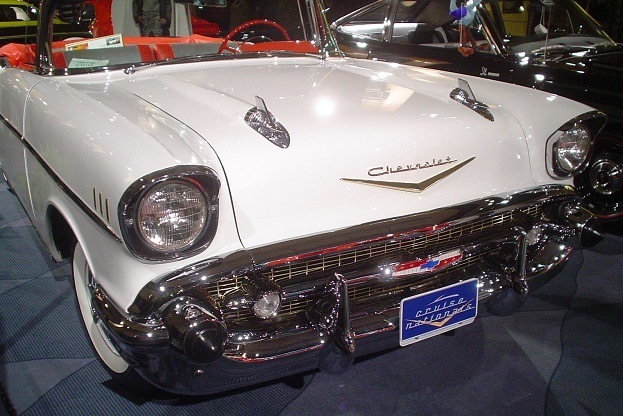
This past week, a most prolific figure of American motoring celebrated their centennial. Founded by Swiss engineer Louis Chevrolet and early American car business mogul William Durant on November 3rd 1911, Chevrolet assembled their first prototype vehicle in an era when the number of auto companies was as diverse as the mobile App world today. Surviving the sizable competition, two world wars, heightened government regulations and the recent bankruptcy of parent company General Motors, Chevrolet is entering 100 years as an industry star. Enjoying sales success with the new Chevrolet Cruze compact, winning back consumer enthusiasm with the Corvette ZR1 and Chevrolet Camaro as well as preparing a new globalized focus to be highlighted with the upcoming Malibu, the motivation for the auto brand is as absolute as their past achievements.
While particular Chevy products will mean something to a variety of world motorists, the following eight vehicles display the evolution of the 100-year old car company.
1912 Chevrolet Series C Classic Six
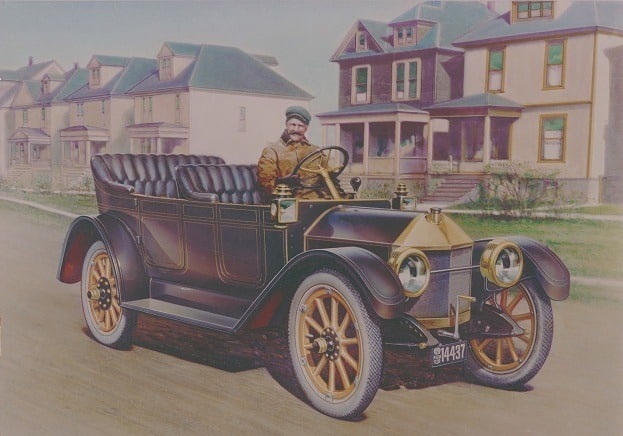
The car that launched the Chevrolet name, the first prototype was constructed in 1911 with regular production started in 1912. Producing fewer than 9,000 examples of the Series C Classic Six over three years, this earliest Chevrolet was a high society touring vehicle featuring European styling inspiration. In 1914, this vehicle was succeeded by the smaller, less expensive Baby Grand. The first Chevrolets wore an insignia reflecting an adaptation on the Swiss cross that would eventually morph into the iconic “Bowtie“ badge.
1969 Chevrolet Camaro
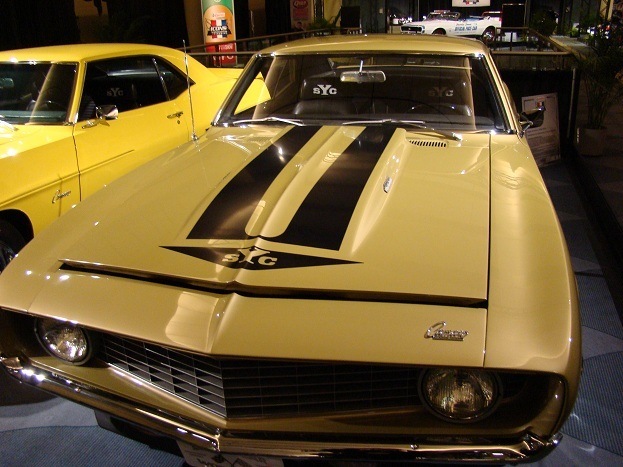
Launched in 1967, the Chevrolet Camaro was immediately positioned against the Ford Mustang in order to capture the young drivers seeking a nimble but powerful American sports car. The 1969 model year of the Camaro allowed the car to project itself as more than a “me too” entry in the pony car segment. Featuring seven different engines starting with a 140-horsepower inline six-cylinder powerplant, maximum power was acquired through the COPO sourced Camaro ZL1. The last year for the first generation body style, the 1969 Chevrolet Camaro also served as the Indianapolis 500 pace car for the triumph of Mario Andretti at the Brickyard. The pace car wearing white with orange striping has grown to be one of the most recognized designs ever to lead the Indy 500 competitors to green. The colouring scheme was revived for the 2011 500-mile event at Indianapolis Motor Speedway as Chevy shares a centennial celebration with the Brickyard.
1960 Chevrolet Corvair
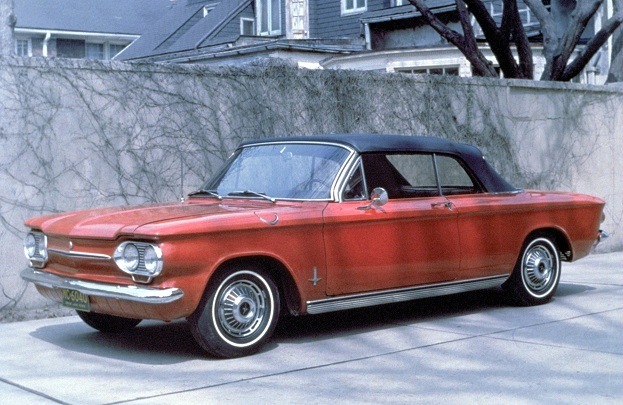
While performance and overall abundance allows most Chevrolets to become major cultural items, a particular car in the auto brand’s history had an indirect and unintentional impact the whole car industry.
A creative attempt at a compact car, the rear-engined Chevrolet Corvair debuted in 1959 as a 1960 model. Attaching some European flair to this economy vehicle in the Chevrolet line-up, the Corvair was definitely am attractive car sold in coupe, sedan, wagon, convertible and even utility-oriented van as well as pick-up in the early 1960s. Selling well at the beginning, the Corvair became the example of public safety activist Ralph Nader. Though the Chevrolet Corvair was targeted as unsafe, the vehicle was roughly no less unstable than many other automobiles on the market. However, the damage done against the Chevrolet Corvair enacted a new level of safety standards that has saved countless lives on the roads.
1957 Chevrolet Belair
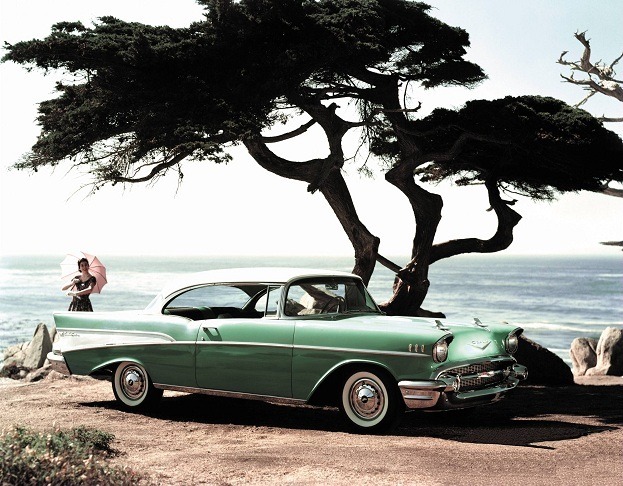
Considered by many as on of the most beautiful American cars ever built, the Chevrolet Belair in the 1957 model year combined the best of V-8 power and striking yet simple style. Built in an era where automakers would build almost their entire vehicle line-up off one chassis, the premium-trimmed Chevrolet Belair coupe or convertible model is the most envied model. Rare models of the 1957 Chevrolet Belair featured the brand’s first application of fuel injection allowing a 283 cubic-inch engine to produce 283 horsepower (a major feat for the 1950s). One year after the 1957 model, Chevrolet sailed along the styling path of the late 1950s involving excessive chrome and monster vehicle proportions.
1955 Chevrolet Corvette
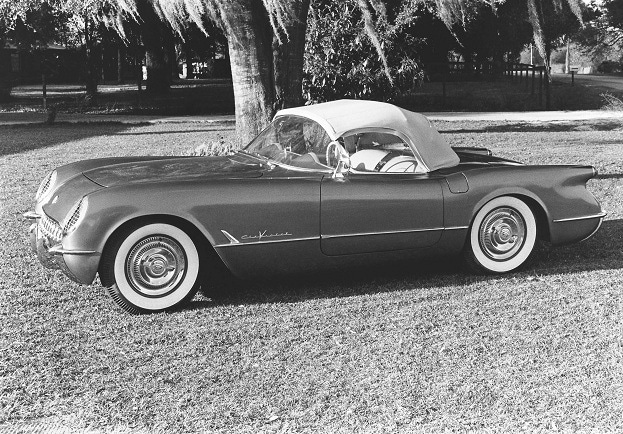
While the first year of the Chevrolet Corvette in 1953 was a monumental time for the long-enduring American built sports car, the 1955 model year presented the fiberglass two-seater with its soul.
Selling just over 3,800 vehicles in the first two years of production, the Corvette was almost dismissed by General Motors by the time 1955 rolled forward. Powered by the adequate ‘Blue Flame’ inline-six initially, Corvette engineer Zora Arkus-Duntov was able to persuade that the 1955 model should have a V-8 engine. The first of what would be known as the small-block engines, the 265 cubic-inch V-8 was introduced just as Ford began marketing their potent Thunderbird sports car. Thanks to the competition from a long-standing foe and a new devotion to speed, the Chevrolet Corvette speaks American performance driving on the streets and on the track through every incarnation since the 1955 model year.
1977 Chevrolet Caprice
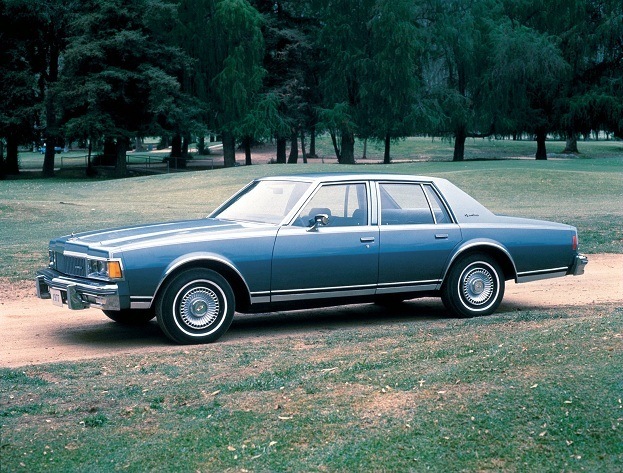
Affectionately called the ‘Flying Brick’ by some, the Chevrolet Caprice built from 1977 to 1990 was a staple of United States cities. The 1977 model year Chevrolet Caprice was one of many larger General Motors to undergo a much-publicized downsizing in the wake of the oil crisis of the earlier 1970s. Seeing its wheelbase reduced by 5.5 inches compared to the previous generation Caprice, the modern-looking downsized car was well received by customers in showrooms but found growing admiration among larger entities. Law Enforcement agencies ordered a bundle of Chevrolet Caprice sedans revering the V-8 power and still beefy steel bodies. Taxi companies were also a steady customer of the Caprice appreciating the rear room and trunk space as good for business. Redesigned in 1991, the Caprice would remain an American fleet duty worker until 1997. Recently, the Caprice name is readying for a return to the United States as Chevrolet’s new law enforcement product.
1998 Chevrolet Silverado
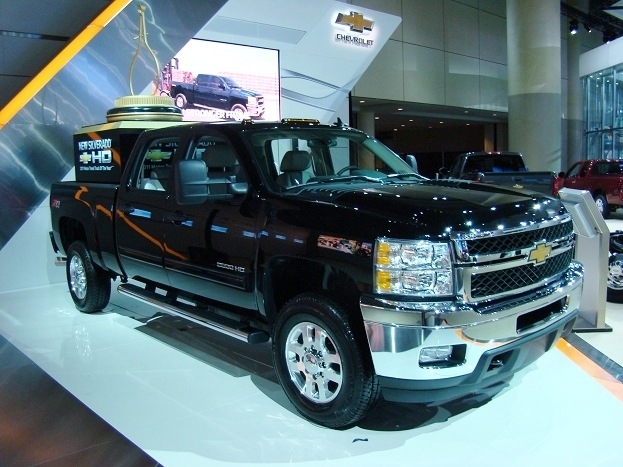
It is amusing to note that the richest history of Chevrolet is found in the work-duty pickup trucks. Dating back to their first truck in around 1918, Chevrolet progression in the pickup truck category involves steady capability and even style. During the 1950s, Chevrolet trucks were defined by employing design cues shared with cars including the 1957 Belair.
Carrying on from the tradition of tough truck endurance of the C/K line, the Silverado pickup truck succeeded the full-sized true utility vehicle in the 1998 model year. Making the Chevrolet Silverado so important was the changing urban automotive landscape that accepted larger trucks. The Silverado was considerably more refined and adaptable for a variety of terrains. At one time, the high volumes of Chevrolet Silverado and other related large utility vehicles were integral for General Motors business model. When fuel costs skyrocketed in 2008, General Motors overdependence on their truck sales (which began to slump considerably) almost led to the auto company’s downfall. However, even as cars have become the new focus with the bowtie brand, the Chevrolet Silverado continues to be a pivotal leader in brand sales accounting for nearly one of every four Chevrolet products sold in 2011 up to the end of October.
2011 Chevrolet Volt
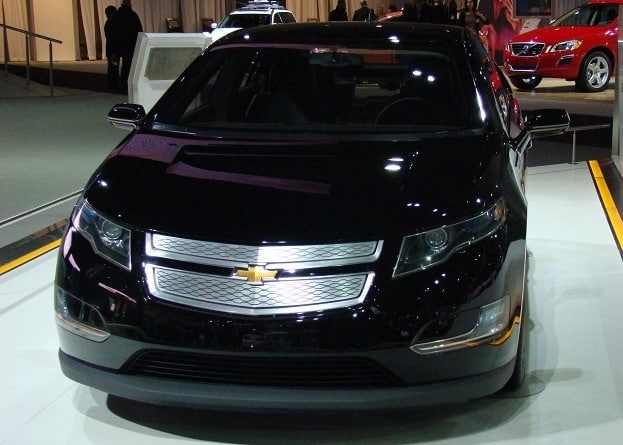
The first plug-in hybrid vehicle introduced for the mass market, the Chevrolet Volt started as a 2007 concept car that Robert Lutz quickly green lit for production frustrated that Japanese auto company Toyota was receiving all the press for their hybrid drive system. Able to travel up to 40 miles on electricity alone, Chevrolet constructed a four-door compact sedan possessing a 0.28 drag coefficient skin around the innovative powertrain. Sold in limited markets since last year, Chevrolet has widened the availability of the Volt for the 2012 model year. Retailing with a suggested manufacturer price tag at nearly $40,000, ownership of the Chevrolet Volt is assisted by government tax credits while the technology remains an experiment.
Potentially reshaping not just Chevrolet but the whole 21st century auto industry, the Chevrolet Volt could be the key to many more anniversaries for the car company.
Information source: General Motors, Corvette-America’s Sports Car, Cars of the Sizzling ‘60s
Photo Source: Chris Nagy, General Motors

